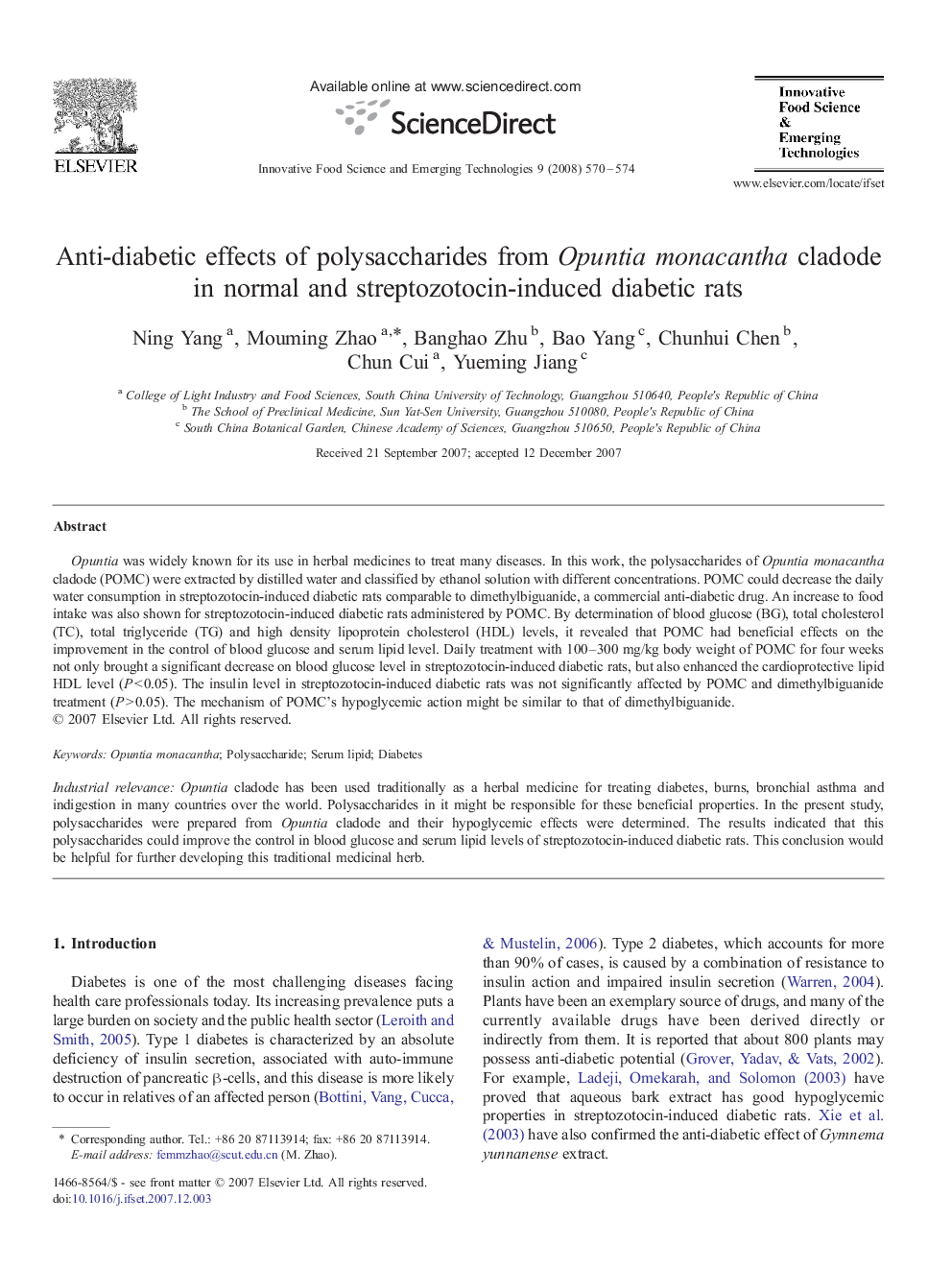| Article ID | Journal | Published Year | Pages | File Type |
|---|---|---|---|---|
| 2087356 | Innovative Food Science & Emerging Technologies | 2008 | 5 Pages |
Opuntia was widely known for its use in herbal medicines to treat many diseases. In this work, the polysaccharides of Opuntia monacantha cladode (POMC) were extracted by distilled water and classified by ethanol solution with different concentrations. POMC could decrease the daily water consumption in streptozotocin-induced diabetic rats comparable to dimethylbiguanide, a commercial anti-diabetic drug. An increase to food intake was also shown for streptozotocin-induced diabetic rats administered by POMC. By determination of blood glucose (BG), total cholesterol (TC), total triglyceride (TG) and high density lipoprotein cholesterol (HDL) levels, it revealed that POMC had beneficial effects on the improvement in the control of blood glucose and serum lipid level. Daily treatment with 100–300 mg/kg body weight of POMC for four weeks not only brought a significant decrease on blood glucose level in streptozotocin-induced diabetic rats, but also enhanced the cardioprotective lipid HDL level (P < 0.05). The insulin level in streptozotocin-induced diabetic rats was not significantly affected by POMC and dimethylbiguanide treatment (P > 0.05). The mechanism of POMC's hypoglycemic action might be similar to that of dimethylbiguanide.Industrial relevanceOpuntia cladode has been used traditionally as a herbal medicine for treating diabetes, burns, bronchial asthma and indigestion in many countries over the world. Polysaccharides in it might be responsible for these beneficial properties. In the present study, polysaccharides were prepared from Opuntia cladode and their hypoglycemic effects were determined. The results indicated that this polysaccharides could improve the control in blood glucose and serum lipid levels of streptozotocin-induced diabetic rats. This conclusion would be helpful for further developing this traditional medicinal herb.
